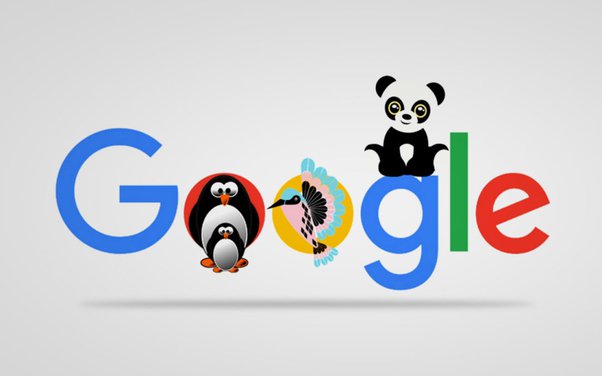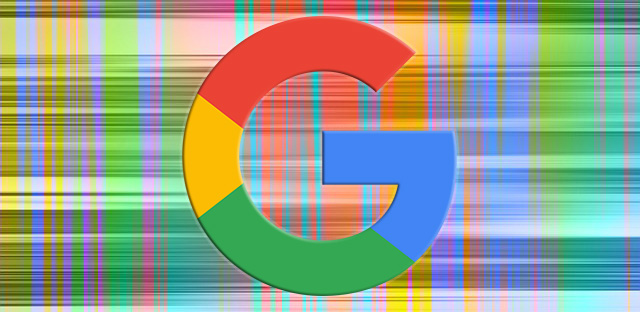Examining the Key Differences Between Google’s Coati and Panda Algorithms
In this article, we will discuss the difference between the Coati and Panda algorithms. Since the inception of Google, this search engine has always tried to respond to its users in the best possible way by using multiple algorithms. Google is not working with one algorithm but with several algorithms. By understanding the new needs and demands of the users, a new model is developed to improve the performance of the previous algorithms. The Coati algorithm is one of these algorithms, which was developed to complete the function of the Panda algorithm. Join us to discuss the difference between the Coati algorithm and the Panda algorithm:

The difference between the Coati algorithm and the Panda algorithm from a performance point of view
To discuss the difference between the Coati and Panda algorithms, we must first know what needs each of these algorithms was developed to solve. Google develops its algorithms based on the new needs and demands of users. The Panda algorithm was created when Google categorized search results based on quality. In this case, users could receive more quality content in the search results. The Panda algorithm initially played a big role in satisfying users.
For example, by searching for keywords, users were not faced with content at the top of the meaningless results, but full of the keywords they were looking for. The Panda algorithm penalizes duplicate content. Therefore, the users looking for the top of the results had to get to work and order the content creators themselves.
Panda was very sensitive to copy and quickly identified and found copy content. Panda was able to help Google in measuring the quality of content, but day by day, users expect more from Google. So Google set out to fix Panda’s shortcomings. The Coati algorithm was written to help Google measure better and better. As a result, in examining the difference between the Coati algorithm and the Panda algorithm, it can be said that the Coati algorithm is more accurate in measuring quality and could have a better classification of quality.
The difference can be found in the naming!
To check the difference between the Coati algorithm and the Panda algorithm, you can also look at the difference between the two animals that these two algorithms are named after. First, you need to pay attention to the fact that both animals are black and white. The Panda is completely black and white, but the Coati is a similar animal that, in addition to being black and white, has a body of another color and is not two colors. This nomenclature wants to point out the difference that, according to Panda, there are two categories of content, black and white, which means good or duplicate.
At the same time, the Coati algorithm categorizes them from white to black. This algorithm can also make the content gray, not black and white like Panda. As you can guess from the name of this algorithm, the Panda algorithm is slow. At the same time, the Coati algorithm is agile and fast.
The difference between the Coati algorithm and the Panda algorithm from the point of view of encouragement and punishment
If we want to talk about the difference between the Coati and Panda algorithms, we need to talk about Google’s approach to encouraging and punishing. Google used to categorize content using the Panda algorithm. Good content was allowed to appear among the Google results. The contents that were classified as black and of poor quality were penalized.
Therefore, the result of the Panda algorithm was black and white. The contents were either removed or placed among the search results. The Coati algorithm has more of an encouraging approach than a punitive one. If quality content is evaluated according to this algorithm, it will be at the top of the results. Lower-quality content will be ranked lower and will not have a chance to reach the top of the results.
The Coati Algorithm is more user-oriented!
In examining the difference between the Coati algorithm and the Panda algorithm, it is necessary to consider that Google has always tried to focus on user satisfaction. Day by day, Google’s algorithms have been improved to attract more user satisfaction. In comparing these two algorithms, it should be emphasized that the Coati algorithm focuses more on user satisfaction and considers the quality of content. Therefore, it can be said that the Coati Algorithm, completed by the Pandast Algorithm, which helps the Google search engine, pays more attention to user satisfaction.
SEO measures based on these two algorithms!
Understanding the difference between the Coati Algorithm and the Panda Algorithm will allow you to plan different SEO actions. Before the advent of the Panda algorithm, many content creators focused more on keyword density to improve their SEO position. In this era, using robots to copy content from different sites was common. It can be said that before the Panda algorithm, the main SEO action could be the continuous production of content with a high density of keywords.
With the advent of the Panda Algorithm, copywork has been eliminated from SEO practices. This algorithm was very sensitive to duplicate content. This is how SEO practices became user-centered, and those who produce content tried to produce content for users instead of for search engines. Excessive use of keywords causes the content to become poor quality and no longer has a place in SEO practices.

The need to survey users based on the difference between the Coati algorithm and the Panda algorithm
One of the most important actions that has made the difference between the Coati algorithm and the Panda algorithm is the necessity of checking users’ opinions. To produce useful content that can get a good SEO position based on the Coati algorithm, you must focus on users and weigh their opinions.
To evaluate your actions, it is better to survey users to understand their needs better. Their comments will be the same as Google’s comments based on the Coati algorithm. So, if you want to change your actions and evaluations based on this new algorithm, focus on the users and survey them. Undoubtedly, all other new algorithms that have been introduced or will be introduced in the future are user-oriented.
Coati algorithm in Google and penalty for duplicate content
One of the main differences mentioned between the Panda and the Coati algorithms in Google is in penalty or encouragement. The Panda algorithm allowed it to appear in the search results by checking the content to see if it was evaluated as non-duplicate. However, if the content were evaluated as repetitive and low-quality according to the Panda algorithm, it would be penalized.
At the same time, Coati’s algorithm allows non-repetitive and quality content to be prioritized in search results. Lower-quality content has a lower priority in being displayed among the results, and duplicate and poor-quality content is removed from the search results list. It can be said that the basis of the performance of the Panda algorithm is the penalty, while the basis of the performance of the Coati algorithm is to encourage good and quality content.

Coati algorithm in Google and making search results more user-oriented
The Coati Algorithm in Google is similar to other newer algorithms of Google. It is developed to help Google understand its users’ demands and needs more accurately and consider them more. SEO experts always emphasize that to attract the attention and trust of Google, you must produce content for users. Suppose you want to produce content without paying attention to the needs and wishes of users, according to algorithms, and only for search engines. In that case, you will never be the priority of Google search results.
Therefore, if you want to be at the top of the search results, determine and identify your users and audience carefully. Then, I will try to produce practical and useful content based on their wishes and needs. By consistently producing good-quality content, you will see that Google has recognized and trusted you as a good content producer. So you will be at the top of the search results.
Of course, you have to plan to maintain this position and Google’s trust and produce useful content in a long-term and continuous manner. Surveys show that the more specialized you are and the more specialized and quality content you produce in specific functional areas for users, the more successful you will be.
FAQ
What was Google Panda designed to do?
Panda targeted low-quality, duplicate, or thin content to reduce its ranking in search results.
What is Google Coati and how is it related to Panda?
According to a Google Search executive, Coati is the evolved version of Panda — Coati replaced Panda in Google’s core ranking system.
How do the roles of Panda and Coati differ in today’s SEO?
While Panda focused on penalizing low-quality content, Coati carries forward that mission within Google’s core algorithm, applying content-quality checks more seamlessly across search rankings.
